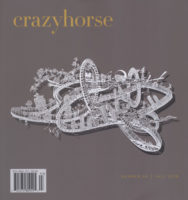The Odyssey Workshop for fantasy, science fiction, and horror writers is accepting applications. Deadline to apply for the 2020 workshop is April 1. The event will run June 1 to July 10 in Manchester, NH. Learn more…
NewPages Blog
At the NewPages Blog readers and writers can catch up with their favorite literary and alternative magazines, independent and university presses, creative writing programs, and writing and literary events. Find new books, new issue announcements, contest winners, and so much more!
Event :: Odyssey Writing Workshop 2020
Spread the word!
Threats against the author of ‘American Dirt’ threaten us all
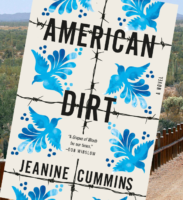 Threats against the author of ‘American Dirt’ threaten us all. By Ron Charles, The Washington Post.
Threats against the author of ‘American Dirt’ threaten us all. By Ron Charles, The Washington Post.
And in the current climate, hate quickly becomes weaponized. Gurba told Vox this week that she had received death threats after posting her review of “American Dirt.” And the ad hominem comments about Cummins flying around the Web have been brutal. From the start, too much of the discussion of this mediocre novel has been snarled up in identity politics — a poisonous tendency encouraged by the author herself. In a pleading afterword to “American Dirt,” Cummins confesses that she wished “someone slightly browner than me would write it.”
…But some detractors are determined to short-circuit such a possibility — or any discussion sparked by this novel. Fortunately, Flatiron remains committed to serious debate. Although Cummins’s bookstore tour has been canceled, the publisher has announced plans to conduct town hall meetings involving Cummins and “some of the groups who have raised objections to the book.” Let’s hope those discussions can move forward without bullying, intimidation or violence.
…The best critics of “American Dirt” are clearly motivated by a desire to defend the integrity of Mexican culture and the humanity of our most vulnerable residents. But in today’s toxic atmosphere, those valuable critiques have been drowned out by a cowardly chorus of violence.
Spread the word!
Program :: The MFA at Florida Atlantic University
The MFA in Creative Writing program at Florida Atlantic University offers concentrations in fiction, creative nonfiction, and poetry. Core faculty include Ayşe Papatya Bucak, Andrew Furman, Becka Mara McKay, Susan Mitchell, Kate Schmitt, and Jason Schwartz.
Students have the opportunity to work with online literary magazine Swamp Ape Review (which reopens to submissions on April 1). Learn more…
Spread the word!
Brilliant Flash Fiction – January 2020
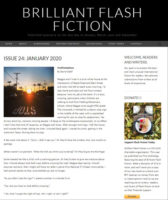
The January 2020 issue features flash fiction by David Galef, Martha Keller, Ron Hartley, Luke Rolfes, Kenneth Hinegardner, Michael Clark, Meg Pokrass, Marie Anderson, Roberta Beary, Robert Pope, Warren L Jones III, and David C. Metz.
Spread the word!
Call :: Bending Genres Open Year-Round
Besides hosting monthly weekend workshops and retreats, online literary magazine is open to submissions year-round. There is no fee to submit. Learn more…
Spread the word!
Trans Representation in Film & TV
 “Disclosure”: Groundbreaking Documentary Examines a Century of Trans Representation in Film & TV. Democracy Now.
“Disclosure”: Groundbreaking Documentary Examines a Century of Trans Representation in Film & TV. Democracy Now.
The documentary examines the depiction of transgender people in television and film for more than a century, from the 1914 silent film A Florida Enchantment to the Oscar-winning 1999 film Boys Don’t Cry to the new hit television series Pose. Through in-depth interviews with transgender actors, activists and writers, the documentary reveals the way Hollywood and the media both manufacture and reflect widespread misunderstandings and prejudices against trans people. The film also champions the trans people in film and television who have fought and are fighting tirelessly for accurate and dignified representation on screen.
… There is a lack of historical context for trans people, which we actually see in the legislation, as well. There’s this notion that it’s a new phenomenon, that trans people are a sudden trend that need to be combated, because we have this continual historical forgetting. We don’t know our own past. We don’t know that we’ve been around, because we don’t get to see those images.
Spread the word!
Call :: Tiger Moth Review Issue 4
The Tiger Moth Review is open to submissions on the themes of nature, culture, the environment, and ecology for Issue 4. Deadline to submit is May 2020. They do not charge a submission fee. Learn more…
Spread the word!
The Adroit Journal – January 2020
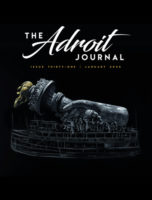
The Adroit Journal Issue 31 is here with new poetry by Victoria Chang, Michael Bazzett, Bruce Snider, Mark Halliday, Paul Guest, Lena Khalaf Tuffaha, Faylita Hicks, Caroline Crew, Paige Quiñones, Abby E. Murray, Natalie Eilbert, and more; prose by Kate Folk, Pete Segall, Alexander Weinstein, Alex Perez, Wendy Oleson, and John Elizabeth Stinzi; and art by Heather Betts, Jenny Shi, Anna Frankl, Niya Gao, You Young Kim, and Serge Gay Jr. Plus five new interviews with Victoria Chang, Danez Smith, Paige Lewis, Corrie Williamson, and Carmen Maria Machado.
Spread the word!
Call :: S/tick Angry/Mad Issue
Online literary magazine S/tick provides a place for women, women-identified, and feminists of all stripes to share their grief, anger, and joy. S/tick is open to submissions of feminist writing and art for its “Angry/Mad” issue. There is no fee. Deadline is March 31. Learn more…
Spread the word!
Science as Story
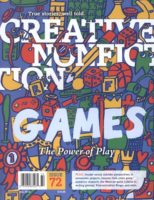 In their recent newsletter, literary magazine Creative Nonfiction has announced a new series of events launching this spring called Science as Story. The best part of this series is that these events will be free thanks to the support from the Fisher Fund of the Pittsburgh Foundation.
In their recent newsletter, literary magazine Creative Nonfiction has announced a new series of events launching this spring called Science as Story. The best part of this series is that these events will be free thanks to the support from the Fisher Fund of the Pittsburgh Foundation.
From March to May, five scientists will visit Pittsburgh to give public lectures. If you aren’t a local to the area, these will also be available as webinars! Each of these scientist writers will also participate in intimate conversations along with Q&As to discuss the craft of writing.
Plus, they will also be running a six-week writing workshop for scientists who are itching to tell their stories.
Featured authors in this series are Azra Raza, Amanda Little, Dawn Raffel, Danielle Ofri, and Ruth Kassinger. Visit their website to learn more.
Spread the word!
Call :: Storm Cellar Summer 2020 Issue
Storm Cellar is currently accepting submissions of writing and art for its Summer 2020 issue. Women, BIPOC, LGBTQIA+, poor, neurodivergent, border-straddling, and other under-represented voices especially encouraged to submit.
They accept submissions on a rolling basis with free submissions starting at the beginning of the month. They also offer expedited and tip jar submission options.
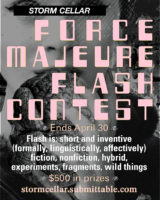 Besides looking for submissions for their summer issue, they are also accepting all things flash for their FORCE MAJEURE Flash Contest. Pieces should be under 1,000 words and can contain fiction, nonfiction, marks, images, or any combination thereof.
Besides looking for submissions for their summer issue, they are also accepting all things flash for their FORCE MAJEURE Flash Contest. Pieces should be under 1,000 words and can contain fiction, nonfiction, marks, images, or any combination thereof.
Deadline to enter is April 30. $5 fee for 1 piece of flash or $12 for 3. Winner receives publication and $300.
Spread the word!
Bookselling and Liberation
Bookselling and Liberation: Black Bookstores in America, from the ’60s to the Present. American Booksellers Association 2020 Winter Institute keynote event.
“These Black radical bookstores were part of a larger movement,” said Davis, and they emerged from social movements in the ’60s and ’70s, including civil rights, Black power, feminism, environmentalism, and the peace movement.
… “Our core is from that era because it represents us, and we’re very eager to share that with young people because it was written with them in mind,” she said. “People who were incredibly oppressed wrote for the next generation. And so, a good bookseller makes sure that the next generation gets access to what was left behind for them.”
Spread the word!
“Death of the Farm Family” by Sarah Smarsh
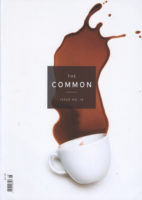 Magazine Review by Makenzie Vance
Magazine Review by Makenzie Vance
In the Issue 8 of The Common, Sarah Smarsh describes how her grandfather’s home became a central gathering place for friends and family and then how it was lost after his death. She begins two generations before her own and skillfully condenses her three-generational story into a compelling length.
Smarsh recounts how her drifter grandmother met her grandfather and finally settled down after a life of wandering with her teenage child—Smarsh’s mother. Though the farmhouse served as a communal space for family and friends and a home for eccentric farm traditions like sledding in a canoe behind a truck, the farm fell apart when her grandfather died, leaving a hole in their lives.
Smarsh speaks to all when she illustrates the importance of a central gathering place for a community, and she reaffirms the importance of small farms and the lives lived upon them.
About the reviewer: Makenzie Vance is a creative writing student at Utah State University.
Spread the word!
Contest :: StoryQuarterly Fiction Contest 2020
StoryQuarterly is accepting submissions to its 8th annual Fiction Contest through March 28, 2020. $15 fee. Winner will be published in Issue 53. This year’s judge is Garth Greenwell, author of What Belongs to You. Learn more…
Spread the word!
Contest :: Puerto del Sol Prose & Poetry Contests 2020
Literary magazine Puerto del Sol is accepting submissions to its annual writing contests through April 1, 2020. This year’s judges are Rodney Gomez and Vi Khi Nao. Winners receive $500 and publication. $9 fee includes a one-year subscription. Learn more…
Spread the word!
Contest :: Killer Nashville Awards for Published & Unpublished Works
Killer Nashville is the premier forum for all literature incorporating mystery, thriller, suspense, or true crime. They are accepting submissions to their annual awards for both published and unpublished works. Winners will be announced at the 2020 writers’ conference on August 22. Learn more…
Spread the word!
Contest :: Florida Loquat Festival 2020
The Florida Loquat Festival is seeking a page of poetry and prose for its annual writing contests. Work must have loquats as the subject or central theme. There is no fee to submit. Deadline to enter is March 6, 2020. Winner receives $100 and publication. Learn more…
Spread the word!
Call :: Oyster River Pages 2020 Reading Period
Literary and artistic collective Oyster River Pages is open to submissions for their next annual issue! They believe in the power of art to connect people to their own and others’ humanity. ORP likes to feature artists and writers whose voices have been historically de-centered and marginalized.
Submissions open through May 31, 2020. There is no fee to submit.
Spread the word!
Contest :: First Pages Prize 2020
 With writing being embraced or rejected based on first paragraphs, the First Pages Prize has been established to encourage emerging writers. Besides the annual prize, there is also an awards event in Paris, France and year-round inspiration available on their website.
With writing being embraced or rejected based on first paragraphs, the First Pages Prize has been established to encourage emerging writers. Besides the annual prize, there is also an awards event in Paris, France and year-round inspiration available on their website.
The 2020 Prize is open through February 16 (extended deadline). If writers submit by the normal February 2 deadline, the entry fee is $25. After the 2, the fee goes up to $35.
The prize is open to un-agented writers who must submit the first five pages of a fiction or creative nonfiction manuscript. $2,250 in cash awards, partial developmental editing, plus travel and accommodation to be in Paris, France for presentation events June 9-10.
This year’s judge is the award-winning author Sebastian Faulks, whose latest work Paris Echo was released June 2019.
Spread the word!
Call :: The Blue Mountain Review
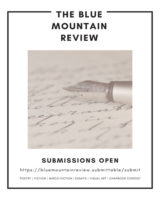 Literary magazine The Blue Mountain Review launched in 2015 with the mantra “we’re all south of somewhere.” They are open to submissions with “homespun and international appeal” year-round and seek to preserve and promote “lives told well.” They do charge a $5 submission fee. Learn more…
Literary magazine The Blue Mountain Review launched in 2015 with the mantra “we’re all south of somewhere.” They are open to submissions with “homespun and international appeal” year-round and seek to preserve and promote “lives told well.” They do charge a $5 submission fee. Learn more…
Spread the word!
Caribbean region needs publishers
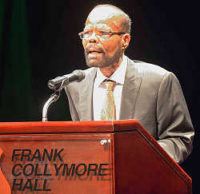 Caribbean region needs publishers. Caribbean Life. The state of publishing in the Caribbean has regressed to the conditions of the 1940s, and apart from Barbados, anglophone Caribbean governments give short shrift to the literary arts.
Caribbean region needs publishers. Caribbean Life. The state of publishing in the Caribbean has regressed to the conditions of the 1940s, and apart from Barbados, anglophone Caribbean governments give short shrift to the literary arts.
So says Vincentian and leading Caribbean novelist and literary critic, Dr. Nigel Thomas, who while complimenting Barbados at a recent awards function for its vibrancy in promoting the arts, said the island has far to go for greater organisation in permanently recognising its outstanding artistes.
… Thomas who lives in Quebec and is author of 11 books and five novels contends that the absence of recognition for creators in literary arts is part of a bigger problem in the English-speaking Caribbean where those who pen from their imagination have little or no publishing opportunities.
Spread the word!
CANCELLED :: Contest :: Stockholm Writers Prize 2020
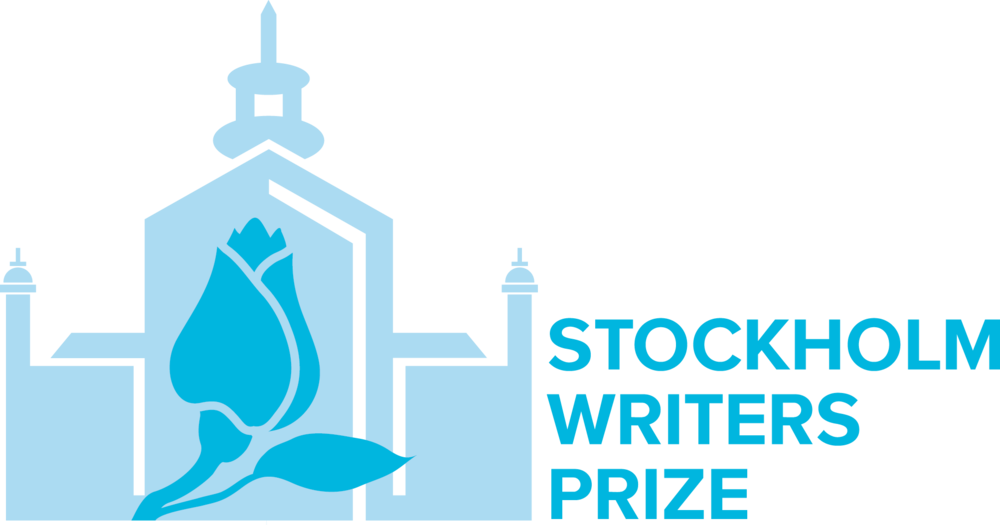 The Stockholm Writers Festival is an annual event that takes place each spring in Stockholm, Sweden. They host the Stockholm Writers Prize to give emerging writers the time, space, and inspiration to focus on social-justice themed writing.
The Stockholm Writers Festival is an annual event that takes place each spring in Stockholm, Sweden. They host the Stockholm Writers Prize to give emerging writers the time, space, and inspiration to focus on social-justice themed writing.
This year’s prize is open through Saturday, February 15 11:59 PM Central European Time. The winner receives a seven-day residency in Stockholm, Sweden from May 21 to 27 and $1,000 to be used towards travel expenses. Also included is a 1-1 meeting with an agent and individual feedback from the guest judge.
Writers must submit a creative writing sample (up to 1500 words) and a 1000-word personal statement on how they foresee their writing creating change, why this social justice issue matters to them, and how they can benefit from the residency.
**Updated 2/12/20: Stockholm Writers Festival cancelled this year’s contest and fees have been refunded.**
Spread the word!
Ascent ascends
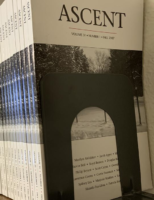 Local literary magazine Ascent ascends under new editorial management. Inforum.
Local literary magazine Ascent ascends under new editorial management. Inforum.
After thousands of submissions and hundreds of pieces of work published for the world to enjoy, a fresh mind and eye is taking over the local literary magazine Ascent. As of January, W. Scott Olsen, an English professor at Concordia College in Moorhead and the author of several books, has stepped back from his role as editor-in-chief of the literary magazine — handing over the reins to colleague Vincent Reusch.
Ascent currently publishes online, with a few hard-copy issues printed each year; however, Reusch is hoping to bring back a regular schedule of printing submitted work.
To submit work, or to read pieces by other authors, visit the magazine’s website at readthebestwriting.com.
Spread the word!
Adventures in Publishing Outside the Gates
 Adventures in Publishing Outside the Gates by Wendy C. Ortiz. Gay Mag. It can be a long road to publication when signing with a big five publisher. Editors come and go. Books get put on hold for a variety of reasons. Here was a small press publisher who wanted to publish this book the following year. No big publisher could do that. I had no faith at that point that anyone would give me a second look — they already hadn’t. I wanted to hold out for the editors who never responded to my agent, still hopeful I’d get a chance with a big publisher with what would be my first book, but I was learning they never would.
Adventures in Publishing Outside the Gates by Wendy C. Ortiz. Gay Mag. It can be a long road to publication when signing with a big five publisher. Editors come and go. Books get put on hold for a variety of reasons. Here was a small press publisher who wanted to publish this book the following year. No big publisher could do that. I had no faith at that point that anyone would give me a second look — they already hadn’t. I wanted to hold out for the editors who never responded to my agent, still hopeful I’d get a chance with a big publisher with what would be my first book, but I was learning they never would.
… I wonder about an industry that wants to pay seven figures for a fictional book about sexual abuse. I wonder about an industry that is constantly taken to task for perpetuating white supremacy in its mostly-white field, from receptionist to first reader to editor to CEO.
…My story is just one example of how the publishing industry works. Gatekeepers have kept me, and so many others, out. Now is the time to call out the publishing industry (as we have, as we do, as we keep having to do) for its racism and small-mindedness about who gets published and who does not; who gets massive advances and who does not.
Spread the word!
Call :: Wordrunner eChapbooks Spring 2020 Anthology
Wordrunner eChapbooks is celebrating 10 years of publishing with the release of their Spring 2020 anthology.
Writers can submit poetry, fiction, memoir, and creative nonfiction for this anthology through February 29. They want emotionally complex and compelling writing on any theme or subject that has not been previously published. $3 submission fee.
They pay accepted authors $5 to $25.
Spread the word!
Why Book Reviewing Isn’t Going Anywhere
 Why Book Reviewing Isn’t Going Anywhere. The American Scholar. Now an assistant professor of sociology at McMaster University in Ontario, Chong researches how fiction book reviews come to fruition, trying to solve the puzzle of why some books get reviewed and why so many more are ignored. Her new book, Inside the Critics’ Circle: Book Reviewing in Uncertain Times makes the case for the persistence of old-guard professional criticism even in the Internet age.
Why Book Reviewing Isn’t Going Anywhere. The American Scholar. Now an assistant professor of sociology at McMaster University in Ontario, Chong researches how fiction book reviews come to fruition, trying to solve the puzzle of why some books get reviewed and why so many more are ignored. Her new book, Inside the Critics’ Circle: Book Reviewing in Uncertain Times makes the case for the persistence of old-guard professional criticism even in the Internet age.
… reading, especially literary novels—which is what I focus on—has always been practiced by a really elite group of people, and these are often people who are invested in the idea of reading as a way to understand the world around us. People don’t just read reviews to find books to buy, they also read reviews to learn about what ideas are circulating in the culture.
… But to go back to the idea of authenticity and trust, this is just as much if not more of an issue for reviews on places like Goodreads and Amazon. Who is booklover123? Is it the author’s aunt? Agent? An ex-student who feels he deserved an “A”?
Spread the word!
Iowa Review Announces 2020 Jeff Sharlet Award for Veterans
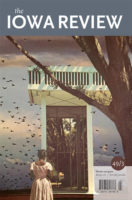
Literary magazine The Iowa Review hosts the Jeff Sharlet Memorial Award for Veterans. This writing contest is open to U.S. military veterans and active duty personnel. Writing can be in any genre and on any subject.
This year’s contest opens on May 1 and will be judged by Reginald McKnight, author of He Sleeps. The deadline to enter is May 31. First place receives $1,000 and publication in a forthcoming issue of Iowa Review. Second place receives $750 and three runners-up receive $500 each. Check out their site for full guidelines.
You can see the winners of the 2018 contest here: iowareview.org/blog/winners-fourth-veterans’-writing-contest. The 2018 winners were featured in the Spring 2019 issue.
This contest is made possible by a gift from the family of Jeff Sharlet (1942-69), a Vietnam veteran and antiwar writer and activist.
Spread the word!
The Cult of Likeability
 The Cult of Likeability (or Why You Should Kill Your Literary Friendships) Craft essay by Jackson Bliss. TriQuarterly.
The Cult of Likeability (or Why You Should Kill Your Literary Friendships) Craft essay by Jackson Bliss. TriQuarterly.
I’ve noticed a recurring trend in my fiction workshops recently that troubles me, partially because I was once the defendant in the same court of law during my own MFA program: a creative writing student stands up (metaphorically speaking) and then declares almost joyfully that they don’t like a character in the manuscript we’re workshopping or in the novel we’re reading. After I pause and wait for the student to elaborate, I soon realize that their dislike is the critique. I can’t help but wonder if the either/or fallacy of cancel culture I see routinely on social media has in some way reinforced this notion in workshop that unlikeable characters (like people in real life) don’t deserve our attention, which is why we’re allowed to stop considering them at all, once we decide we don’t like them. Frankly, I find this kind of reader response lazy, problematic, ungenerous, and uninsightful, regardless of whether we’re talking about art or people.
…What if the real problem is that, as readers, we’ve become impatient assholes who no longer want to understand the people we’d like to erase, both in literature and in our lives. What if part of the issue here is that, as readers, we now want to cancel the characters that rub us the wrong way (or even worse, who offend us) precisely because we now live in an era where we want to shut up half of those we share the world with.
Spread the word!
‘Wilderness of Hope’ by Quinn Grover
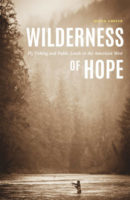 Guest Post by Carly Schaelling
Guest Post by Carly Schaelling
Quinn Grover takes readers into a landscape of rivers, wildness, and fly fishing in his essay collection Wilderness of Hope: Fly Fishing and Public Lands in the American West. His descriptions of Idaho, Utah, and Oregon rivers make the reader feel as if they can hear the current and smell the water. Central to this essay collection is a discussion about home, and he suggests that certain geographies can make us feel “young and old, safe and unsure . . . closer to those I love, yet perfectly alone.”
Through punchy short essays consisting solely of dialogue and moments of self-deprecating humor, Grover’s collection interrogates the meaning of wildness and the importance of public lands. One of my favorite moments in this collection is an essay called “The Case for Inefficiency.” Grover recounts a fishing trip that gets off to a rocky start—a forgotten sleeping bag, a popped tire. Instead of giving in to feeling inefficient, he asks whether it is possible to measure wasted time. If we walk somewhere instead of drive, but find ourselves outside breathing the air and being more patient because of it, is our time really wasted? To treat public lands well sometimes “requires us to blaspheme the gospel of efficiency.”
You don’t have to know anything about fishing to enjoy this book. You will escape to places you may have never been to and fall in love with them when giving this collection a read.
Wilderness of Hope by Quinn Grover. Bison Books, September 2019.
About the reviewer: Carly Schaelling is a creative writing student at Utah State University.
Spread the word!
The Veterans Writing Project
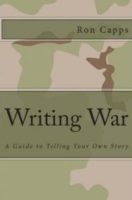 The Veterans Writing Project. Writers Digest. …When he got back to the States he tried conventional talk therapy. He tried medication. He drank. He got a dog named Harry. None of it was getting the PTSD symptoms in the box. He went to a community writing workshop at Walter Reed [medical center], part of Operation Homecoming, and the writing actually helped.
The Veterans Writing Project. Writers Digest. …When he got back to the States he tried conventional talk therapy. He tried medication. He drank. He got a dog named Harry. None of it was getting the PTSD symptoms in the box. He went to a community writing workshop at Walter Reed [medical center], part of Operation Homecoming, and the writing actually helped.
So he went to Johns Hopkins with his GI bill and got an MA in creative writing, with a double concentration in fiction and nonfiction. He wrote his memoir [Seriously Not All Right: Five Wars in Ten Years (Schaffner Press)] as his thesis. Then he decided that he wanted to give back and create a nonprofit that would offer creative writing skills to veterans and family members, regardless of why they wanted to tell their stories—whether it was for expressive and therapeutic purposes, to leave it in a box for the grandkids, or get something published.
Spread the word!
Southern Humanities Review – Winter 2019
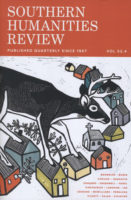
The Winter 2019 issue of Southern Humanities Review is out. In the issue: nonfiction by Lia Greenwell and Leslie Stainton; fiction by Erin Blue Burke, Dounia Choukri, Sayantani Dasgupta, and Alex Pickett; and poetry by J. Scott Brownlee, Sarah Edwards, Jared Harél, Kathryn Kirkpatrick, Matthew Landrum, Donna J. Gelagotis Lee, Rodney Terich Leonard, A.T. McWilliams, Michelle Peñaloza, and Supritha Rajan. Plus, cover art by Martha Park.
Spread the word!
The Iowa Review – Winter 2019

The latest issue of The Iowa Review is out. In this issue: toes, 362.28 in the card catalog, a portfolio of fantastical and surreal writing and artwork, a tenure review gone awry, and the winners of the 2019 Iowa Review Awards. Contributors include Julie Gray, Derby Maxwell, Elizabeth Dodd, Andes Hruby, and Laura Crossett in nonfiction; Joyelle McSweeney, Brian Sneeden, Philip Metres, Maggie Millner, and Stephanie Ellis Schlaifer in poetry; and Chloe Wilson, Sherry Kramer, Terrence Holt, Analia Villagra, and Bruce Holbert in fiction.
Spread the word!
Raymond Carver and the Night of the Living Bukowski
 Raymond Carver and the Night of the Living Bukowski. Los Angeles Review of Books.
Raymond Carver and the Night of the Living Bukowski. Los Angeles Review of Books.
“Nothing about Carver stood out as remarkable at the time. Indeed, he gave the impression of someone who did not want to be noticed, sitting not at the head of the conference table like other visiting poets but on the side with the students, slouched in his chair, hiding behind dark glasses and a scrim of smoke. When prompted by our teacher, Morton Marcus, to talk about his work and to give advice to the table of young, aspiring poets, Carver mumbled through a couple of poems and said something about keeping after it and not giving up. Then he lit another cigarette.
…But as Maderos remembered it, in spite of all Bukowski’s bravado, the mix of students and faculty and town poets in this elite academic environment seemed to have thrown the poet off his game, as he rushed his lines or threw the best ones away. And yet The New Yorker writer William Finnegan, another UCSC undergraduate at the time, recalled loving the event, finding Bukowski more literary than he had expected and, most certainly, larger than life.”
Spread the word!
Gris-Gris – No. 10
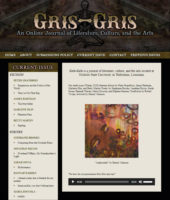
Issue 10 of Gris-Gris features fiction by Peter Grandbois, James Hartman, Marlene Olin, and Betty Martin; poetry by Stephanie Brooks, Jonathan Riccio, Sarah Sousa, Hannah Warren, Maria Zoccola, and Daphne Simeon; nonfiction by Robert Vivian; and artwork by Desire’ Johnson.
Spread the word!
Margaret Atwood’s New Poetry
 Margaret Atwood to publish first collection of poetry in over a decade. The Guardian.
Margaret Atwood to publish first collection of poetry in over a decade. The Guardian.
Margaret Atwood is set to publish her first collection of poetry in over a decade, an exploration of “absences and endings, ageing and retrospection” that will also feature werewolves, aliens and sirens.
After jointly winning the Booker prize with Bernardine Evaristo last year for her bestselling sequel to The Handmaid’s Tale, The Testaments, Atwood’s publisher said today that the 80-year-old Canadian author’s next book would be Dearly. Out in November, the collection will be Atwood’s first book of poetry since 2007’s The Door.
Spread the word!
The Gettysburg Review – Fall 2019
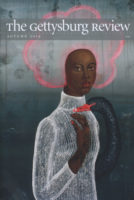
The Autumn 2019 issue of The Gettysburg Review features a selection of paintings by Anne Siems; fiction by Cody Harrison, Gary Amdahl, and Kathryn Harlan; essays by Valerie Sayers, Geoff Wyss, and Floyd Collins; poetry by Gregory Fraser, Robert Gibb, Adam Tavel, G. C. Waldrep, Connor Yeck, Kathryn Nuernberger, Alison Pelegrin, Todd Davis, Alice Friman, Nancy Carol Moody, Edward Mayes, Averill Curdy, Joyce Sutphen, Sarah Kain Gutowski, and Stanley Plumly.
Spread the word!
Smorgasbords Don’t Have Bottoms
 Smorgasbords Don’t Have Bottoms. N+1 magazine. A long read touching on Borders, Amazon, the Kindle, indie bookstores, ebooks, audiobooks, Barnes & Noble, conglomerate publishing, Trump books, the end of fact-checking and editing, Goodreads, indie publishers, and more.
Smorgasbords Don’t Have Bottoms. N+1 magazine. A long read touching on Borders, Amazon, the Kindle, indie bookstores, ebooks, audiobooks, Barnes & Noble, conglomerate publishing, Trump books, the end of fact-checking and editing, Goodreads, indie publishers, and more.
“… there is a giant constellation of books being produced by America’s independent publishers, carefully edited and intelligently marketed, that are worth reading. Though they face long odds and ghastly profit margins (n+1 barely breaks even on books we sell through Amazon), in a destabilized media environment, books published by independents often get the same degree of press as those with six-figure marketing budgets, their impact on the culture wildly disproportionate to their authors’ and publishers’ limited means.”
Spread the word!
Chinese Literature Today – Winter 2020
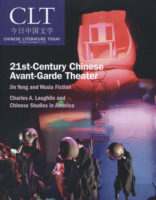
In the latest issue of Chinese Literature Today, find a special feature on Twenty-First Century Chinese Theater with work by Liu Hongtao, Zhang Xian, Li Jing (including an interview with Li Jing by Liu Hongtao), Zhai Yueqin, Ding Luonan, Chen Jide, and Song Baozhen. Also in this tenth anniversary issue: a tribute to Jin Yong with work by Liu Hongtao, Paul B. Foster, and Weijie Song; work by Xiao Fuxing; and featured scholar Charles A. Laughlin.
Spread the word!
Pause and Effect
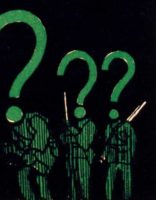 The past and future of punctuation marks. History Matters magazine.
The past and future of punctuation marks. History Matters magazine.
We send each other millions of faces each day, hoping to press complex emotional tones into waywardly arranged punctuation marks: a colon, a dash, half a bracket, closed if happy, open if sad. This seems like a radical reinvention of these marks, yet the real leap of thought happened much earlier.
In classical times there were no punctuation marks or spaces between words. Since punctuation determines sense (‘Let’s eat, Grandpa’ versus ‘Let’s eat Grandpa’)…
Spread the word!
New England Review – Polish Poetry in Translation
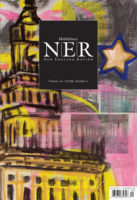 Magazine Review by Andrea Diamond
Magazine Review by Andrea Diamond
Ellen Hinsey and Jakob Ziguras were invited to assist the New England Review in compiling a collection of poems written by previously untranslated Polish authors in a special issue titled “Polish Poetry in Translation: Bridging the Frontiers of Language” (Volume 40 Number 2, 2019). No doubt, Ellen Hinsey, who had previously used love as her guide to identify works to include in her book Scattering the Dark: An Anthology of Polish Women Poets, was chosen for her care and attention.
The introduction to Hinsey’s anthology is referenced in an editor’s note in this issue and highlights difficulties that translation presents. Hinsey describes how even best efforts are often unable to fully create expressions and understandings in English that exist uniquely in Polish (and other languages) while also preserving beauty in the verses. Continue reading “New England Review – Polish Poetry in Translation”
Spread the word!
On the Hatred of Literature
 On the Hatred of Literature. The Point, Issue 21. … Nearly giving way to what seemed to me at the time (but not now) an embarrassing overflow of emotion, she accused the professors of “hating” literature. We had become English majors in the first place, she went on, not because novels and poems told us interesting things about history or politics but because they made us feel less alone, captivated us with their beauty, helped us to better know ourselves and the world. The professors, as far as I can remember, responded politely: after all, the student was only a sophomore. She would learn.
On the Hatred of Literature. The Point, Issue 21. … Nearly giving way to what seemed to me at the time (but not now) an embarrassing overflow of emotion, she accused the professors of “hating” literature. We had become English majors in the first place, she went on, not because novels and poems told us interesting things about history or politics but because they made us feel less alone, captivated us with their beauty, helped us to better know ourselves and the world. The professors, as far as I can remember, responded politely: after all, the student was only a sophomore. She would learn.
Spread the word!
Chinese Literature Today Celebrates 10 Years
 Back at the end of August 2019, Chinese Literature Today celebrated its tenth anniversary. During the past ten years, the journal—a sister publication to World Literature Today—has published sixteen issues of Chinese work and culture. With their latest issue, the editors have chosen to celebrate by publishing “the first ever CLT special section on contemporary Chinese theater.”
Back at the end of August 2019, Chinese Literature Today celebrated its tenth anniversary. During the past ten years, the journal—a sister publication to World Literature Today—has published sixteen issues of Chinese work and culture. With their latest issue, the editors have chosen to celebrate by publishing “the first ever CLT special section on contemporary Chinese theater.”
In this feature, readers will find over fifty pages of work, including “Boundary-Crossing Experiments: Ecology of the Shanghai Avant-Garde Theater in the New Century” by Zhai Yueqin, translated by Josh Stenberg; an examination of experimental theater by Ding Luonan, translated by Nienyuan Cheng; an interview with Li Jing by Liu Hongtao, translated by David N. C. Hull; and more.
Spread the word!
Walloon Writers Review – No. 6
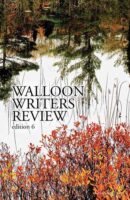
Walloon Writers Review edition 6 is a collection of poetry, short stories and nature photography inspired by Northern Michigan and the Upper Peninsula. This independent regionally focused literary magazine is published annually. “Edition 6” edited by Associate Editor Glen Young, is so titled as this is our first digital edition. Walloon Writers Review edition 6 is available on issuu and the link can be found on our website. No charge for the digital edition this year. Cover photography by Elizabeth J. Bates.
Spread the word!
Nimrod Announces New Contest Deadline for Literary Awards
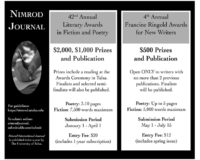 Literary magazine Nimrod has announced a new deadline for their annual Literary Awards. Instead of submissions being accepted through April 30, contest entries are now being accepted January 1 through April 1.
Literary magazine Nimrod has announced a new deadline for their annual Literary Awards. Instead of submissions being accepted through April 30, contest entries are now being accepted January 1 through April 1.
The Katherine Anne Porter Prize for Fiction and the Pablo Neruda Prize for Poetry award $2,000 and publication to the first prize winners.
Nimrod accepts both snail mail and online entries. The $20 reading fee includes a one-year subscription. Check out their website for full submission information: artsandsciences.utulsa.edu/nimrod/nimrod-literary-awards/.
Don’t forget to update your calendars, writers!
Spread the word!
NewPages Book Stand – January 2020
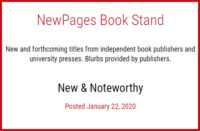 A new Book Stand is available at NewPages! Visit for new and forthcoming titles in fiction, nonfiction, poetry, anthologies, and children’s/YA. Our New & Noteworthy section features six titles this month.
A new Book Stand is available at NewPages! Visit for new and forthcoming titles in fiction, nonfiction, poetry, anthologies, and children’s/YA. Our New & Noteworthy section features six titles this month.
Americans Are trump by Randall G. Nichols explores the mindset of Americans who support our current president.
Dispatches from the End of Ice by Beth Peterson “is part science, part lyric essay, and part research reportage.”
In HULL, Xandria Phillips “explores emotional impacts of colonialism and racism on the Black queer body and the present-day emotional impacts of enslavement in urban, rural, and international settings” in their debut collection.
Orison Books has released their fourth anthology, “an annual collection of the finest spiritually engaged writing that appeared in periodicals in the preceding year.”
Someone You Love Is Still Alive by Ephraim Scott Sommers has been called “a gorgeous and dangerous book” by Jericho Brown.
Thirty-six writers share their worst reading experiences in What Could Possibly Go Wrong? edited by Richard Peabody.
You can learn more about each of these featured titles at our website. Interested in placing your book in our New & Noteworthy section? Learn more here.
Spread the word!
2019 Writer’s Block Prize in Fiction Winner
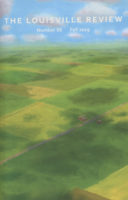 Winners of Louisville Literary Arts’ annual Writer’s Block Prize are published in The Louisville Review. The Fall 2019 issue includes the winner of the 2019 prize: “The Things We Leave Behind” by Aimée Lehmann.
Winners of Louisville Literary Arts’ annual Writer’s Block Prize are published in The Louisville Review. The Fall 2019 issue includes the winner of the 2019 prize: “The Things We Leave Behind” by Aimée Lehmann.
Lehmann’s fiction was selected by 2019 judge Garth Greenwell. In addition to publication, Lehmann also received a $500 prize for her winning piece. The 2020 Writer’s Block Prize is open during the summer months, so stay tuned for updates on this year’s deadline.
Spread the word!
Updated :: 15th Annual Mudfish Poetry Prize
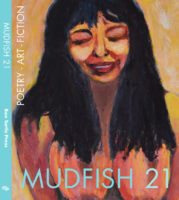 Literary magazine Mudfish has announced it is now accepting submissions for its 15th Mudfish Poetry Prize. This year’s judge is Erica Jong, American novelist, satirist, and poet.
Literary magazine Mudfish has announced it is now accepting submissions for its 15th Mudfish Poetry Prize. This year’s judge is Erica Jong, American novelist, satirist, and poet.
Mudfish is accepting both snail mail and email entries to the contest. You can submit up to 3 poems for $20. $3 fee for each additional poem.
Mail entries to Mudfish, 184 Franklin St, Ground Fl., New York, NY 10013 or email to [email protected]. Deadline to enter is March 15. On March 5, Mudfish announced they are extending the contest deadline to May 15, 2020.
Winners of last year’s contest, judged by John Yau, can be read in Issue 21 which is now available for pre-order.
Spread the word!
“Owosso” by Mary Birnbaum
Mary Birnbaum’s nonfiction piece “Owosso” caught my eye in the latest issue of Crazyhorse, not only because it’s the winner of the Crazyhorse Nonfiction Prize, but because it’s a familiar name (though a surprise to see in a national literary journal); the tiny town in Michigan is a mere hour away from where I’ve lived my whole life. It’s also where Birnbaum’s grandfather lived, she learns as she reads his obituary at the gym. This discovery leads her on an exploration of the concept of ghosts and hauntings.
Across the country, Birnbaum writes of the ghostly characters of The Turn of the Screw by Henry James and personal ghost stories shared by two friends. This leads her to look at the ghosts of her own life. These are not supernatural beings haunting the darkness, but are her father and her grandfather, two strangers removed from her life.
Birnbaum’s thoughts about her father and grandfather are complex and complicated. She breaks her ideas apart into small chunks, making them easily digestible as she bounces back and forth between ghost stories, the “what-ifs” of finding and confronting her father, and her discovery at the gym. At one point she wonders, “if it’s worse to be a ghost or to be haunted. I wonder if both are possible in me,” leading me to consider the ways in which I myself am a ghost or am being haunted in my own life.
As the essay wraps up, Birnbaum decides to label Owosso a mythical location. But while the small city is something separated from herself, it did conjure up from the shadows a tiny, welcomed connection between writer and this reader.
Spread the word!
“Transcendence: A Schematic” by Alyssa Quinn
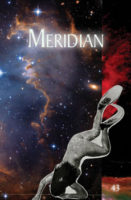 Magazine Review by Shaun Anderson
Magazine Review by Shaun Anderson
Alyssa Quinn’s “Transcendence: A Schematic”—Meridian Editors’ Prize 2019 winner—explores her efforts to process the loss of her brother. Weaving together a pilgrimage to Walden Pond, her memories of her brother, and her own beliefs and doubts, Quinn probes the hollowed out spaces, searching for a truth she can hold in the absence of her brother.
The exploration of emptiness leads Quinn to consider the places others turn to for truth. She explores science, religion, and maps, searching for a space where she can find her brother. Even in form, Quinn demonstrates absence as she creates a schematic, seeking answers from figures that do not exist. As Quinn tries to present an answer to her questions about death, transcendence, and reality she can only state with absolute uncertainty, “Perhaps the center is just as elusive as the beyond; matter as problematic as spirit.” In death, Quinn’s brother has shattered Quinn’s understanding of reality.
While the essay pulses with the agony of living in an emptied reality, Quinn recognizes that even her writing has been reformed by the loss of her brother. Quinn must confront the fact that “Syntax cannot convey true absence—say ‘I miss him’ and there he is again—there is no language for loss, for such awful missing.” Her work plunges into the loss of her brother, and emerges with the knowledge that Quinn must create a space to hold her brother within her own words.
About the reviewer: Shaun Anderson is a creative writing student at Utah State University.
Spread the word!
2019 SRPR Editor’s Prize Winners
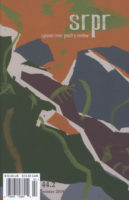 Spoon River Poetry Review’s Winter 2019 issue features the 2019 SRPR Editors’ Prize winner and runners-up.
Spoon River Poetry Review’s Winter 2019 issue features the 2019 SRPR Editors’ Prize winner and runners-up.
Winner
“The Mammoth Steppe” by Mirande Bissell
Runners-Up
“I Thought I Was the Scream that Woke Me” by Abigail McFee
“After weeks apart” by Alex Chertok
“Burning the Field” by Mitchell Untch
“Evolution” by Andrea Deeken
“Hoodoos” by Robin Rosen Chang
“Arizona” by Harry Bauld
Final Judge Rachel Webster introduces Bissell’s work and explains her choice, stating, “And maybe what I appreciate most about this poem is the fact that it introduces me to a speaker, a family and a landscape that are new to me, and piercingly vivid.” This year’s contest is currently open until April 15.

